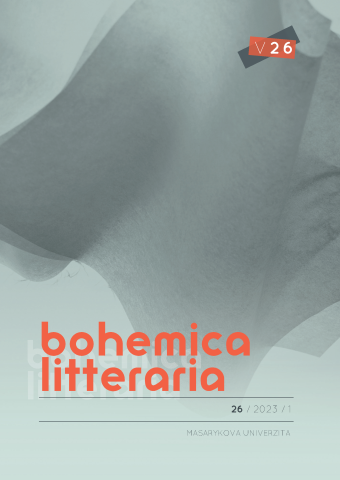Subaltern voices from the sertão : cultural history of broadside ballad in Brazil
Subaltern voices from the sertão : cultural history of broadside ballad in Brazil
Author(s): Kateřina BřezinováSubject(s): Language and Literature Studies, Studies of Literature, Other Language Literature
Published by: Masarykova univerzita nakladatelství
Keywords: Brazil; history; broadside ballad; cordel; popular culture; representation; subaltern; gender; modernity; ethnicity
Summary/Abstract: This paper analyzes the role of cordel – the Brazilian contribution to the global tradition of the broadside ballad – as a reservoir of cultural memory of the Nordeste, the region where cordel took root in Brazil. Cordel is at once perceived as a repertoire of representations, images, and meanings that have shaped messages on social order. The focus here is on transformations that have occurred in cordel titles over time and, in particular, how gender and ethnicity have been represented in cordel texts during different periods and locations in a region that, even now, has been characterized by latifundism, the absence of the state, and abysmal social inequalities. To this end, the examination of cordel titles by José Francisco Borges (1935), Jarid Arraes (1991), and Auritha Tabajara (1980) in this context is grounded in a cultural studies framework. Among other perspectives, we engage with the question posed by Spivak to highlight the cordel as a venue in which the subaltern voices of the colonized and otherwise marginalized segments of Brazil's population have expressed themselves historically until the present. Whereas cordel traditionally represented a space in which the voices and concerns of ordinary Brazilians from the rural hinterland found their way into the public arena, new possibilities of publishing cordel post-2000 have opened it up to new narratives from the otherwise silenced actors of Brazilian society and history, including female authorship, and Afro-Brazilians and the Indigenous as protagonists of their own representation. This paper concludes by pointing to how cordel has been notably successful in accommodating Brazil's diverse social realities. Its narratives now speak in the multiple voices of the sertão, thus inviting its readership to rethink Brazil's cultural history, historical memory, and symbolic imaginaries.
Journal: Bohemica litteraria
- Issue Year: 26/2023
- Issue No: 1
- Page Range: 207-224
- Page Count: 18
- Language: English

